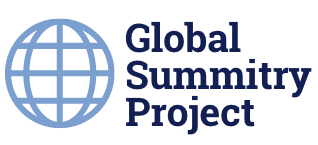The Roundtable Participants
On Friday, August 27th, 2010 participants gathered for the recording of this Roundtable. While all the participants were not available, the Roundtable did include:
- Miles Kahler, the Distinguished Professor for the School of International Service at American University;
- Susan Shirk, Chair of the 21st Century China Center and Research Professor, UC San Diego School of Global Policy and Strategy; and
- Yves Tiberghien, a Professor of Political Science, University of British Columbia and first holder of the Konwakai Chair in Japanese Research.
Unable to join us for the recording was Arthur Stein, UCLA, Jessica Chen -Weiss, Cornell University, Bruce Jones, Brookings, and G. John Ikenberry, Princeton.
I was pleased to chair the proceedings that had originally been scheduled for the annual APSA conference in Seattle scheduled for September 30th and concluding on October 3rd. On the APSA schedule the Roundtable was to go off on Thursday September 30th from 16:00 to 17:30 (PDT).
Roundtable Theme
What was the Roundtable all about? Here was our framing of the Roundtable to the Co-ordinators:
Growing rivalry in US-China relations has heightened the prospect of a bipolar order, a world divided between a China adamantly illiberal in its domestic politics and growing aggressiveness in its foreign policy and a new administration in the United States intent on reasserting liberal values in its foreign policy. China’s path, and that of the United States, and its closest allies have diverged, and policies of engagement have fallen from favor.
The Biden Administration has come to power in a political context of this Sino-American rivalry in which there is widespread skepticism in the West with Chinese political, social, economic, and foreign policies. There are different views about which aspects of Chinese policy to confront (state-owned enterprises, intellectual property theft, domestic repression, human rights violations, foreign lending, attacks on countries that criticize China, etc.). What strategies are most appropriate and effective? A debate is underway in the incoming Biden Administration about the inevitability of competition, rivalry and conflict, and the political strategies available to the US and its allies.
The Roundtable will discuss early Biden administration policy and assess its prospects given the historical experience with different strategies. Adopting ‘competition without catastrophe’ focusing on allies and setting the rules, greater divergence, or even a general “decoupling” in relations is likely to impair global prosperity, raise political tensions, and possibly even threaten the peace
The Roundtable will discuss early Biden administration policy and assess its prospects given the historical experience, including earlier approaches from Obama’s pivot to Asia, to Trump’s trade war, to Biden colleagues calling for ‘strategic competition focusing on allies and setting the rules, suggesting greater divergence, or even a general “decoupling” in relations. Which policies are likely to improve or impair global prosperity, raise or lower political tensions, improve international stability or instead threaten the peace?
The Roundtable will discuss competing proposed approaches, from Obama’s pivot to Asia to Trump’s trade war to Biden advisors proposing ‘competition without catastrophe, to proposals for greater divergence and decoupling.
What global orders are desirable and likely? What are the prospects for bilateral, plurilateral, or multilateral orders? Is a complex mixed order feasible or desirable? Will the Biden Administration favor or permit it? What will Xi Jinping authoritarianism permit?
What ranges of policy and regime divergence are viable with contemporary interdependence? What limits on policy and outcomes are set by national interests, international commitments, and norms?
What roles could rising powers, traditional middle powers and regional organizations, ASEAN, the European Union, Japan, Korea, Canada, Australia, and others play in establishing and sustaining an order that can prevent a wider divide between the world’s two largest economies and avoid a security competition and military conflict.
What institutional initiatives would reinforce their influence in building a future international order?
What are the limits to pluralism set by international commitments and norms?
